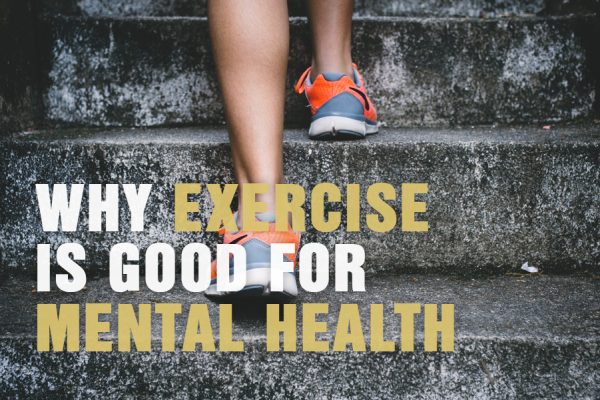For many of us, one of the only things that made the lockdown manageable and bearable, was the blue skies and sunshine over the last few months – and as the lockdown measures started to lift we were able to enjoy al fresco dining with our friends and family members, picnics in the park, and even holidays abroad again.
Now, with the Covid stats climbing again, the thought of a lockdown through winter has been looming. If this does happen, how can we protect our mental health?
Many of us, especially in the UK, Europe, and America, dread the winter months with the shorter days and colder weather, and that was before we were dealing with a global pandemic and the prospect of a lockdown.
However, we can take some lessons from countries like Norway, who go without direct sunlight from mid-November to mid-January every year and show no real change in mental wellbeing throughout the year (according to research by the University of Tromsø).
Mindset
May Trude Johnsen, who conducted the research described above, concluded that the strongest factor impacting the resilience of the Norwegian people through the winter months was their mindset. Research has long suggested that how we view, or frame, a stressful event has strong implications for how we react to it.
For example, those who see a stressful event as a challenge and something that they can learn and grow from, are more likely to cope better and adapt quicker than those who see a stressful event as a threat. Research published in the Journal of Personality and Social Psychology in 1993 found that reframing stressful events can not only impact our psychological health, but our physiological responses as well. They found that those who saw stressful events as opportunities had lower blood pressure, lower heart rates, and recovered faster after the stressful event was over.
A recent survey, that started before the outbreak of the Covid-19 pandemic, at the end of 2019, has already been able to show the small but significant impact of the way people have framed the pandemic on their responses to it. For example, those who made use of “active coping” skills such as setting up a dedicated office space at home, scheduling in home-schooling times for the kids, and ensuring they ate, slept, and exercised well all seem to have been protected from the worst psychological effects of the lockdown.
Furthermore, this survey found that the most resilient participants had managed to recognise the potential benefits and opportunities in the pandemic, such as being able to learn something new, or having the opportunity to grow as a person.
However, simply “changing your mindset” is often easier said than done, and these researchers were quick to note that we also can’t deny the fact that these are difficult times and that people are facing real grief, mental health difficulties, and economic struggles.
Practical Tips For A Winter Lockdown
Back in March 2020, we wrote an article about prioritising your mental health during the coronavirus pandemic. These are some extra tips for coping with a lockdown in the winter months. If we are to go into another lockdown, here are some things that we can do to boost our resilience and protect our mental health:
- Rely on experience. One of the only benefits of this being a potential second lockdown, is that we now have more of an idea of what to expect. We can look back over the summer months and decide what worked for us and what didn’t. We can adjust our expectations to a more realistic level, and head straight for the coping strategies that worked for us last time. Rather than setting ourselves the goal of writing the next best-selling book, we can reach for those small comforts and routines that tided us over in the last lockdown.
- Punctuate your day. Make sure you punctuate your day with something that connects you to the outside world and/or to a person outside of your household. It is important to ensure that your working-from-home day doesn’t just bleed into your evening chill-out time. Perhaps you go for a walk or a run, maybe a shared dog-walk with a neighbour (ticking both boxes), or a weekly video call with a group of friends.
- Make the mundane special. Create a routine with some excitement in it. Maybe you and your partner or housemates decide to have a fancy dinner once a week where you all dress up as if you were at an expensive restaurant. Maybe you organise a special date night once a week or a girl’s movie night.
- Brave the weather. As the Norwegians say, “There is no such thing as bad weather, only bad clothes.” Although going for a walk on a cold or even rainy day might not seem as enticing as a sunny walk with blue skies, getting out in nature can have huge benefits in terms of cognitive function, attention, emotional wellbeing, and, of course, physical wellbeing.
- Stay vigilant about your news intake. It is easy to slip into the habit of checking the news every hour, to constantly check for updates on the lockdown status, on the mortality rates, and so on, but this can lead to a spike in anxiety and an increase in interrupted sleep (which can, in turn, impact mood).
- Get support. Sometimes you can follow all the guidance, and yet you still find yourself feeling anxious or struggling in some way with the impacts of the pandemic. Seeking out support can help you to process your emotions and be able to deal with them in a healthier way.
If you’d like professional therapeutic support to help you process your experiences of the pandemic then get in touch with us by calling 020 8673 4545 or emailing [email protected] We have appointments available at our centres in Clapham and Tooting, seven days a week.








